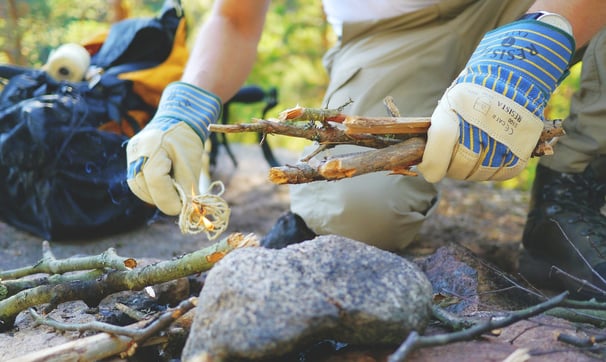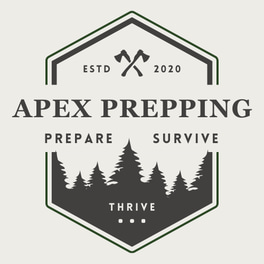Survival Skills for Beginners: Where to Start and What to Learn
EDUCATIONPREPPINGFEATURED


In a world where we heavily rely on modern conveniences, the art of survival may seem like a distant concept. However, being prepared for unexpected situations and emergencies is a valuable skill that everyone should possess.
Whether you enjoy outdoor adventures, want to be ready for natural disasters, or simply wish to enhance your self-reliance, learning survival skills can prove to be a life-changing endeavor. In this blog post, we'll explore where to start and what essential survival skills beginners should learn.
1. Identify Your Motivation
Before diving into the world of survival skills, it's crucial to identify your motivation and purpose. Are you interested in camping and outdoor activities, or do you want to be prepared for potential disasters in your area? Knowing your purpose will help you narrow down the specific skills you should focus on and provide direction for your learning journey.
2. Basic First Aid and Medical Skills
Regardless of your survival goals, mastering basic first aid and medical skills is paramount. Learning how to dress wounds, treat burns, perform CPR, and manage other common injuries can save lives in emergency situations. Many organizations and community centers offer first aid courses that are accessible to beginners.
3. Fire Building and Shelter Construction
Fire and shelter are two fundamental components of survival. Understanding how to build a fire using various methods (such as friction, sparks, or flint) will keep you warm, purify water, and cook food. Similarly, knowing how to construct a temporary shelter using natural materials can protect you from harsh weather conditions and provide a sense of security.
4. Water Sourcing and Purification
Water is essential for survival, but finding safe water sources in the wild can be challenging. Learn to identify potential water sources like rivers, streams, and springs. Additionally, acquire knowledge about water purification methods, such as boiling, chemical treatment, and filtration, to ensure you can make water safe to drink.
5. Navigation Skills
Getting lost in unfamiliar territory is a serious concern for anyone venturing into the wilderness. Learning basic navigation skills using a compass and map or GPS device will help you find your way back to safety. Familiarize yourself with landmarks, natural signs, and orienteering techniques.
6. Foraging and Wild Edibles
Knowing how to identify edible plants, berries, and mushrooms in the wild can supplement your food supply in emergencies. However, be cautious as some plants can be poisonous. Invest time in studying local flora and learn from experienced foragers or field guides.
7. Basic Tool and Equipment Usage
Understanding how to use basic survival tools like knives, axes, and multi-tools is crucial. These tools can help you build shelter, gather firewood, and perform various tasks efficiently. Take time to practice using them safely.
8. Basic Self-Defense
In survival situations, personal safety is a top priority. While the best approach is to avoid dangerous encounters, learning basic self-defense techniques can be invaluable in unforeseen circumstances.
9. Understanding Weather and Natural Hazards
Being aware of the weather forecast and potential natural hazards in your area can help you plan and prepare for your adventures or potential emergencies. Stay informed about weather patterns, floods, wildfires, earthquakes, or other potential risks.
10. Cultivate a Survival Mindset
Lastly, developing a survival mindset is perhaps the most critical skill. Stay calm, assess situations rationally, and adapt to changing circumstances. Positivity, determination, and resourcefulness can make a significant difference in challenging situations.
Conclusion
Survival skills are not just for extreme enthusiasts or doomsday preppers; they are essential life skills that can benefit everyone. Learning these skills not only empowers you to handle emergencies but also enhances your self-reliance and connection with the natural world. Start with the basics, practice regularly, and seek opportunities to expand your knowledge through courses, workshops, or experienced mentors. Remember, the more prepared you are, the more confident you'll feel in any situation life throws your way. So, take that first step on your survival journey and embark on an adventure of learning and growth. Stay safe, and happy survival learning!
